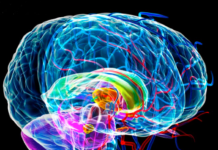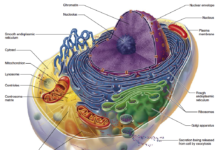Worse, their overuse may also increase our cancer risk.
We’ve been telling you about the global threat of superbugs [1]. Much of it comes from handing out antibiotics like medicinal candy to humans or as dietary supplements to animals. Now there’s new evidence of the negative effect of antibiotics on our weight as well as a potentially devastating effect on our children’s (and children’s children’s) health.
Microbiologists at New York University have published a new study [2] that says the overprescribing of antibiotics could be making us fat! Researchers fed infant mice low doses of penicillin; after 30 weeks, penicillin-fed mice were between 10 and 15 per cent bigger and twice as fat as drug-free mice.
This affirms research from Copenhagen [3] which found that infants given antibiotics within the first six months of life were more likely to be overweight at age 7, even if their mother was of a healthy weight.
In the NYU study, when mice were given short courses of higher dose antibiotics—the kind that young children tend to receive for infections—their immune systems became compromised, producing significantly lower numbers of helper T-cells.
The study also showed that low doses of antibiotics shifted the balance of certain gut microbes, reducing the numbers of Lactobacillus, a “good” bacterium linked to a lower risk of cancer recurrence. A healthy gut that contains a great variety of good bacteria is our best protection against cancer; after all, our intestines are a powerhouse of our body’s immune system.
Researchers at the University of Oklahoma have been studying fossilized feces [4]. This may sound odd but there is a lot to be learned. Among other things they found that ancient feces have more bacterial DNA in common with those of non-human primates and children living in rural Africa than they do with modern, Western gut microbiomes (a word that describes microbes, their genetic elements, and their interactions in a particular environment).
It’s not that the new gut microbiome is better—just the opposite, in fact. Changing the composition of the bacterial colonies lining our intestines has been linked to [5] irritable bowel syndrome, Crohn’s disease, asthma, Parkinson’s disease, and many other problems.
Carl Lewis, the lead author of the U of O study, said, “My first hypothesis would be that chlorinated water and antibiotics have fundamentally changed human microbiomes….The association between antibiotics and obesity is important to explore.”
Lewis didn’t make this connection, but if chlorinated water is harming our gut, what about fluoride, a known neurotoxin? As we reported last month [7], fluoride in our water supply increases the accumulation of lead in bone, teeth, and other calcium-rich tissues, transporting heavy metals into areas of your body they normally would not be able to go—like your brain. Might it not also affect the gut microbiome?
There is an underlying irony to the new questions surrounding antibiotics and other quick fixes to infectious diseases. In the 19th and early 20th centuries, medicine was not a high-prestige profession. It is antibiotics in particular that changed all that. Suddenly, with the emergence of these “wonder drugs,” doctors and conventional medicine were put on a pedestal by most people.
This is still observable among some older people, who express the attitudes they grew up with. But today, with resistant pathogens exploding, the pandemic danger increasing, and the unintended consequences of “wonder drugs” becoming clearer, more and more people are looking for a greater degree of humility and openness to new ideas from the conventional medical community.
Source: The Alliance for Natural Health USA: http://www.anh-usa.org
URL to article: http://www.anh-usa.org/antibiotics-may-be-contributing-to-the-obesity-epidemic/
[1] the global threat of superbugs: http://www.anh-usa.org../../../../../miracle-drugs-are-the-problem-not-the-solution/
[2] published a new study: http://www.nature.com/nrmicro/journal/v7/n12/full/nrmicro2245.html
[3] research from Copenhagen: http://www.nature.com/ijo/journal/v35/n4/full/ijo201127a.html
[4] studying fossilized feces: http://www.newscientist.com/article/mg21328583.700-antibiotics-may-make-you-fat.html?
[5] has been linked to: http://www.newscientist.com/article/mg21328582.700-antibiotics-are-wonder-drugs-no-more.html
[6] As we reported last month: http://www.anh-usa.org../../../../../new-scientific-data-forces-government-to-reverse-its-stance-on-fluoride-in-the-water-supply/













